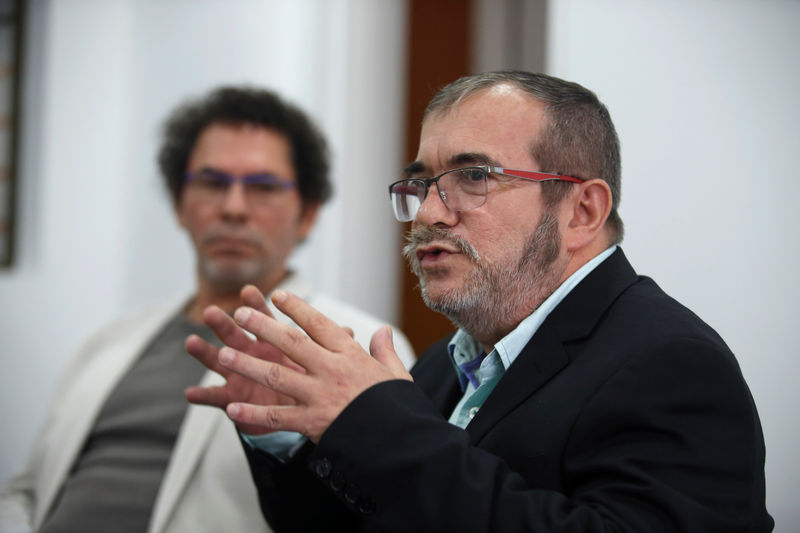By Helen Murphy and Luis Jaime Acosta
BOGOTA (Reuters) - Colombia's Marxist FARC will support a presidential candidate in 2018 to prevent a peace accord being modified or scrapped, rebel leader Rodrigo Londono said on Friday, an apparent bid to block former President Alvaro Uribe's right-wing party taking office.
The Revolutionary Armed Forces of Colombia signed a peace agreement with the government on Thursday, converting it into a political party that will have some weight when President Juan Manuel Santos stands down.
Speaking to the international press, Londono, 57, said there is a struggle in Colombia between those who want peace and those who want the five-decade war to continue. He agreed there is a risk that a political opponent could seek to alter the accord once in office.
"This is a long-term project. To consolidate peace after over 50 years of confrontation won't be achieved in a few months or years. We think the next government, the next president, should guarantee the continuity of the process," said the veteran fighter, known by his nom de guerre Timochenko.
"It should be a transitional government."
The government and FARC worked for four years in Cuba to negotiate an end to the region's longest-running conflict, which killed more than 220,000 and displaced millions in the Andean nation.
An original draft was rejected in a plebiscite last month as too lenient on the rebels, forcing the two sides back to the negotiating table for a second, slightly modified document.
The still-popular and powerful Uribe spearheaded the push to reject the original accord and wants deeper changes to the new version. He has called for protests and may seek a new referendum to scrap the accord.
Despite widespread relief at an end to the conflict, many among Colombia's largely conservative residents are angry because the deal will not jail FARC leaders who committed crimes like kidnappings and massacres. It also allows them to hold political office.
Given such tense sentiment, Londono fears that violence against FARC members could increase in the coming months as they go through the disarmament process and become absorbed into society.
"It's very possible that there's an increase in attacks... in a bid to generate provocations in areas where we are concentrated. We have alerted our people to avoid provocations," said Londono.

The FARC, which began as a rebellion fighting rural poverty, has battled a dozen governments as well as right-wing paramilitary groups. It is considered a terrorist organization by the United States.
